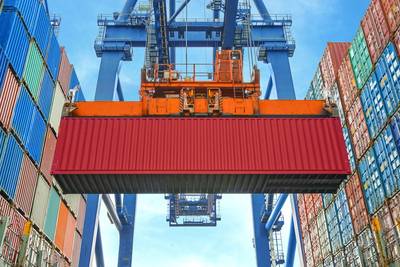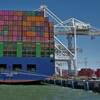PORTS: Busiest U.S. Port Set Cargo Records
The Ports of Los Angeles and Long Beach on Wednesday said they set all-time records for moving cargo in 2018, after U.S. retailers and manufacturers pulled forward imports to avoid higher tariffs on Chinese goods.
The Port of Los Angeles, North America's busiest container port, handled 9.46 million 20-foot equivalent units (TEUs) last year, the most in its 111-year history and 1.2 percent more than in 2017.
The neighboring Port of Long Beach processed more than 8 million TEUs for the first time last year, after container cargo totals jumped 7 percent from 2017.
"This is a rush of cargo based on political trade policy," said Gene Seroka, executive director for the Port of Los Angeles, where direct trade with China accounted for just over half of the $284 billion in cargo the port handled in 2017.
"Many people were fearful that we were going to go from a 10 percent tariff on certain items to 25 percent on January 1," Seroka said.
The U.S. and China in late November agreed to a 90-day ceasefire in their bitter trade war. Under that deal, the U.S. will keep tariffs on $200 billion worth of Chinese imports at 10 percent.
That news came after many importers sped up orders for everything from apparel to auto parts to avoid the higher tariffs.
The cargo surge at Los Angeles/Long Beach and other major U.S. ports spurred disruptions that are rippling through the supply chain. U.S. warehouses are stuffed to the rafters, forcing some importers to delay port cargo pickups or to park containers in parking lots.
The National Retail Federation and Hackett Associates' Global Port Tracker expect 2018 imports to jump 5.3 percent to a record 21.6 million TEUs.
They also project cooling in the early months of 2019, as imports typically soften due to a post-holiday drop in demand and Lunar New Year factory shutdowns in Asia.
"We'll see a little bit of a lull during Lunar New Year and thereafter. That in and of itself will allow us to catch up," Seroka said. (Reporting by Lisa Baertlein in Los Angeles; Editing by Tom Brown)














